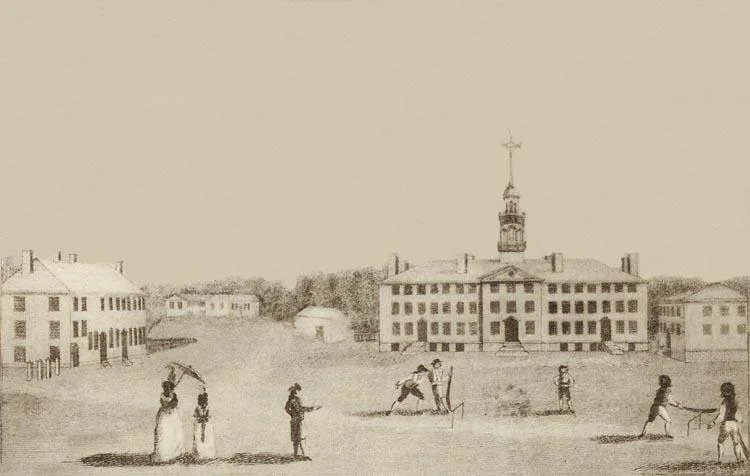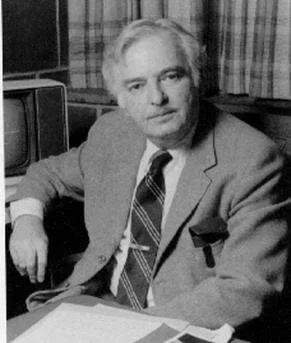
What to do?
“The Great Mystery” (acrylic on canvas), by Canadian artist Kent Monkman, in his show “Kent Monkman: The Great Mystery,’’ at the Hood Museum of Art, at Dartmouth College, Hanover, N.H. , through Dec. 16.
The exhibition features a new body of paintings by Monkman, a member of the Cree nation —including two commissioned works for the Hood Museum of Art's permanent collections.
FYI: Dartmouth began as a school for Native Americans in Connecticut in 1754.
‘Enigmatic languages’
“Presence/Absence” (wooden found object with encaustic, sumi ink, cold wax), by Hanover, N.H.-based artist Lia Rothstein
Her artist statement says:
“I am fascinated by the complexity of the natural world and our own human anatomy. As an artist I have continually explored textures and abstracted forms, negative and positive spaces, light and shadow, linear elements that convey both connectedness and disconnection and, more recently, permanence and fragility. The calligraphic lines and the spaces in between them that I observe in the landscape and in my research about the brain and how we think, process information, and form memories feel like enigmatic languages to me, unique unto themselves, endlessly exquisite yet tenuous. Using waxes and other art materials I feel I can extend the meaning of my work beyond literal representation by creating layers of meaning, metaphor, translucency, physicality and temporality.’’
Students playing cricket at Dartmouth College, in Hanover, N.H., in 1793. The town is mostly known for hosting Dartmouth, chartered in 1769 and whose predecessor institution was Moor’s Indian Charity School, founded in Lebanon, Conn., in 1754.
Josiah Dunham (artist), S. Hill (engraver)
Dartmouth’s Hood Museum of Art.
Hollywood in Hanover
“Dolores del Rio for the Trail of '98” (Metro-Goldwyn-Mayer, 1928, gelatin silver print), by Russell Ball, in “Photographs from Hollywood’s Golden Era: The John Kobal Foundation,’’ at the Hood Museum of Art at Dartmouth College, Hanover, N.H.
The Hood’s acquisition of these photographs gives it one of the world’s largest collections of photos from Hollywood’s golden age.
The museum says that "these images cover the gamut of studio photography from portraiture and publicity shots to film stills from Hollywood’s golden era of the 1920s through the 1950s." In addition to the photographs, a virtual lecture by renown film historian and film-maker Kevin Brownlow will be held on March 3 from 12:30–1:30 EST. For more information, please visit here.
Stephen J. Nelson: Of visionary John Kemeny and decades of court battles over affirmative action at colleges
John G. Kemeny (1926-1992), Hungarian-born mathematician, computer scientist and president of Dartmouth College in 1970-1981
From The New England Journal of Higher Education, a service of The New England Board of Higher Education (nebhe.org)
BOSTON
The U.S. Supreme Court is taking up affirmative action at colleges and universities for the sixth time in 50 years. In that litany, an early case was the University of California vs. Bakke. Bakke complained about being denied admission to the university’s medical school because seats were guaranteed for minority applicants, thus barring the door to him and other white applicants.
When the Bakke case was on the court’s docket, John Kemeny was president of Dartmouth College, in Hanover, N.H. The Dartmouth board of trustees wanted a public statement by the college on Bakke. Given their strong confidence in Kemeny, they gave him sole authority to craft Dartmouth’s stand on affirmative action. Kemeny’s voice from his bully pulpit into the public square about the Bakke case echoes today.
Kemeny’s argument displays ahead-of-the-curve insights. His major concern, one still very much at stake in the outcome of the court’s deliberations today, was that colleges had to be able to maintain their fundamental purposes in the face of any court judgment. Should the court mandate a cookie-cutter approach for college admissions, the unintended consequence would be to reduce diversity among institutions of higher education something that Kemeny said simply would be “highly undesirable.”
Using Dartmouth’s example, Kemeny underscored that the board had affirmed the college’s purpose as “the education of men and women with a high potential for making a significant positive impact on society.”
The board did not define that purpose as “the education of students who have the ability to accumulate high grade-point averages at the College,” a statement that would be “ludicrous!”
Kemeny pushed back against the court going over the edge if it were to compel colleges and universities exclusively to use test scores and presumed objective measures to decide which students to admit. That legal edict would restrict colleges from recruiting and admitting musicians, athletes and any student uniquely qualified to contribute to a student body and a college. Quotas of any sort were in his judgment “abhorrent.” Beware what you wish for.
Years after Bakke, in the 2003 University of Michigan cases, Supreme Court Justice Sandra Day O’Connor asserted that colleges had roughly 25 more years to solve their equity and equal-opportunity problems. After that time, reliance on affirmative-action policies would run out. O’Conner’s clock continues to tick.
Getting to where she urged has proved difficult. Progress on the diversity front in the Ivory Tower is glacial and complicated because competing interests must be addressed and give their blessing or at least not actively resist new programs and initiatives. More time than O’Conner predicted is clearly needed. Ideological players on all sides agree that substantive changes in fairness and equity is the arrival point, though there will always be huge differences about the roadmap.
Greater diversity at colleges and universities makes their campus communities more engaging, more demanding, more rewarding and their members more fully educated. Absent diversity, the highest values of what we want a college education to be will remain outside our grasp. That is true for our body politic inside and outside the gates as graduates take their places in the social of communities and the nation. This picture is the goal, but how to get there and how long it will take are the great unknowns.
The new challenge brought by Students for Fair Admissions alleges that Harvard University discriminates against Asian-American students and the University of North Carolina discriminates against white and Asian- American applicants by continuing the use of race as an upfront criteria in admissions rather than observing a race-blind approach that would place more credence and consideration on an applicant’s struggles with discrimination in their life experiences.
The Supreme Court, of course, relies on arguments. The presidents of our colleges and universities must as a group get in the arena, present their case and gather defenders in amicus briefs. The cards will fall as the court dictates. However, jousting over what the Justices will say has to be embraced. It must be made clear to the court’s justices that they must not do harm to hard-fought policies designed to make our colleges and universities equitable, fair and open to diverse populations. Confining latitude and judgments about the scope of admissions procedures and aspirations to add greater diversity to their student bodies would rob colleges and universities of the very autonomy and freedom in their affairs that makes us the envy of the world. The shape of the future of diversity at our colleges is at stake and college presidents must weigh in with all the authority they can muster.
The voices of college presidents have to be front and center in this debate and in the court’s verdict. John Kemeny’s wisdom is a mantle that today’s presidents and those of us concerned diversity and equal opportunity on our campus must take up.
Stephen J. Nelson is professor of educational leadership at Bridgewater State University and senior scholar with the Leadership Alliance at Brown University. He is the author of the recently released book, John G. Kemeny and Dartmouth College: The Man, the Times, and the College Presidency. He has written several NEJHE pieces on the college presidency.
'Neat and tractored'
The Green in Hanover, N.H.
“Although the smell of fresh-cut grass
is the same everywhere to me
it will always be Hanover {N.H.}:
rec soccer, someone’s tamed
plot of land neat and tractored…’’
— From “A Child’s Guide to Grasses,’’ by Jay Deshpande
Using AI in remote learning
From The New England Council (newenglandcouncil.com)
BOSTON
“In partnership with artificial intelligence (AI) company Aisera, Dartmouth College recently launched Dart InfoBot, an AI virtual assistant developed to better support students and faculty members during the pandemic. Nicknamed “Dart,” the bot is designed to improve communication and efficiency while learning and working from home, with mere seconds of response time in natural language to approximately 10,000 students and faculty on both Slack and Dartmouth’s client services portal.
“The collaboration with Aisera allows for accelerated diagnosis and resolution times, automated answers to common information and technology questions, and proactive user engagement through a conversational platform.
“At Dartmouth, we wanted our faculty and students to have immediate answers to their information and technology questions online, especially during COVID. Aisera helps us achieve our goals to innovate and deliver an AI-driven conversational service experience throughout our institution. Faculty, staff, and especially students are able to self-serve their technology information using language that makes sense to them. Now our service desk is free to provide real value to our clients by consulting with them and building relationships across our campus.” said Mitch Davis, chief information officer for Dartmouth, in Hanover, N.H.’’
The field of artificial intelligence was founded at a workshop on the campus of Dartmouth during the summer of 1956. Those who attended would become the leaders of AI research for decades. Many of them predicted that a machine as intelligent as a human being would exist in no more than a generation.
When utopian libertarians took on a N.H. town
In continuous operation since the 1840s, this store is now known as the Grafton Country Store. Image c. 1919
“The four libertarians who came to {Grafton} New Hampshire had thinner wallets than…other would-be utopians, but they had a new angle they believed would help {in 2004} them move the Free Town Project out of the realm of marijuana-hazed reveries and into reality. Instead of building from scratch, they would harness the power and infrastructure of an existing town—just as a rabies parasite can co-opt the brain of a much larger organism and force it work against its own interests, the libertarians planned to apply just a bit of pressure in such a way that an entire town could be steered toward liberty.”
― Matthew Hongoltz-Hetling, in A Libertarian Walks Into a Bear: The Utopian Plot to Liberate an American Town (published September 2020)
Grafton, in the “Live Free or Die State,’’ was once a libertarian hub of the Free State Project, founded in 2001, with part of the town’s appeal its absence of zoning laws and a very low property-tax rate. But as of 2019, Grafton itself had the 16th highest property-tax rate in New Hampshire. That’s in part because of more affluent and well-educated people moving into a county best know for the Ivy League institution Dartmouth College, in Hanover, and the Dartmouth-Hitchcock Medical Center, in Lebanon. These newcomers demand better services, especially in public education.
The “Free Town Project” was begun by members of the Free State Project to encourage libertarians to move to Grafton. Although the Free Town Project died after conflict between organizers from outside and local residents, many libertarians continued to move to the town. Indeed, Grafton has remained a center of libertarian activism with a strong focus on homesteading, marijuana legalization and agorism, which is a social philosophy that advocates a society in which all relations between people are based on voluntary exchanges.
Originally granted its charter in 1761, Grafton takes its name from Augustus FitzRoy, 3rd Duke of Grafton, a relative of colonial governor Benning Wentworth.
Up to the 20th Century, Grafton’s economic base was subsistence dairy, sheep and other farming, small-scale manufacturing and mining, of all things, with several mica mines and granite quarries, most notably Ruggles Mine.
The Ruggles Mine back when it was a tourist attraction. Sam Ruggles (1770-1843) started the first commercial mica mine in the United States at the site that bears his name.
The United Mica Company operated this mill between 1909 and 1916. Image c. 1909
N.E. Council update: New intubation device; new mobile health program, and more
The seat of local government in Hanover, Mass., where an innovative mobile health program is underway
—Photo by ToddC4176
From The New England Council (newenglandcouncil.com):
As our region and our nation continue to grapple with the Coronavirus Disease (COVID-19) pandemic, The New England Council is using our blog as a platform to highlight some of the incredible work our members have undertaken to respond to the outbreak. Each day, we’ll post a round-up of updates on some of the initiatives underway among Council members throughout the region. We are also sharing these updates via our social media, and encourage our members to share with us any information on their efforts so that we can be sure to include them in these daily round-ups.
You can find all the Council’s information and resources related to the crisis in the special COVID-19 section of our website. This includes our COVID-19 Virtual Events Calendar, which provides information on upcoming COVID-19 Congressional town halls and webinars presented by NEC members, as well as our newly-released Federal Agency COVID-19 Guidance for Businesses page.
Here is the April 15 roundup:
Medical Response
Brigham and Women’s Hospital Researchers Construct New Intubation Device – Healthcare professionals at Brigham and Women’s Hospital have built a new intubation device that limits potential exposure when treating COVID-19 patients. The design was created to be reusable and to protect workers from even microscopic exposure to the virus transmitted through the air by covering a patient’s nose and mouth. WHDH has more.
South Shore Health Launches First Mobile Health Program in Massachusetts – South Shore Health has partnered with the town of Hanover to provide local residents with an innovative mobile health program that offers both testing and health services. Healthcare providers and emergency workers in Hanover will provide at-home testing for those who meet certain criteria or are in vulnerable populations, as well as daily follow-up calls from a volunteer nurse phone bank until infected patients recover. Read more from Boston 25 News.
Economic/Business Continuity Response
IBM Offering Free Computer Systems Training – IBM is offering a free training course on how to code in Common Business Oriented Language (COBOL). States from Kansas to Connecticut still use COBOL in their statewide unemployment systems—now facing increased demand—along with several federal agencies and almost half of United States banking systems. The course is free online and includes a forum where learners can get real-time help from those proficient in COBOL. TechSpot has more.
Boeing Producing Reusable Face Shields in Factories Boeing manufacturing sites across the country are being repurposed to produce reusable face shields to meet the growing demand for protective equipment. Masks will be 3-D printed and distributed to healthcare workers directly exposed to the virus. The aerospace manufacturer has already delivered 2,300 shields and plans to increase output weekly to alleviate strain on existing equipment supplies. Read more from KIRO 7 Seattle
UMass Medical Students Receive New Pandemic Training – As students at the University of Massachusetts (UMass) Medical School are continuing their education remotely because of the pandemic, the Worcester school is now offering a special two-week coronavirus pandemic course. The new class replaces typical hands-on experience with simulations for scenarios that have become common in medical students’ future workplaces, such as navigating telehealth or managing an emergency room with only medical students. Read more in The Worcester Telegram.
Citizens Bank Establishes Small Business Grant Fund – Citizens Bank, in partnership with the Local Initiatives Support Corporation (LISC), is awarding $400,000 in grants to small businesses in Massachusetts. Grant awards are meant to prevent layoffs, avoid insurance gaps, and promote stability in the wake of economic uncertainty. Priority will be given to minority- and women-owned businesses. Read more in MassLive.
Community Response
John Hancock Providing Free Meals to Boston Hospital Staff – To provide assistance to essential healthcare workers exposed to the novel coronavirus, John Hancock is partnering with nonprofit Off Their Plate to donate 8,500 meals to workers in Boston hospitals. The meals will be prepared by a variety of restaurants in the city to support restaurants and their staff as they face their own revenue losses. Read more from PR Newswire
















